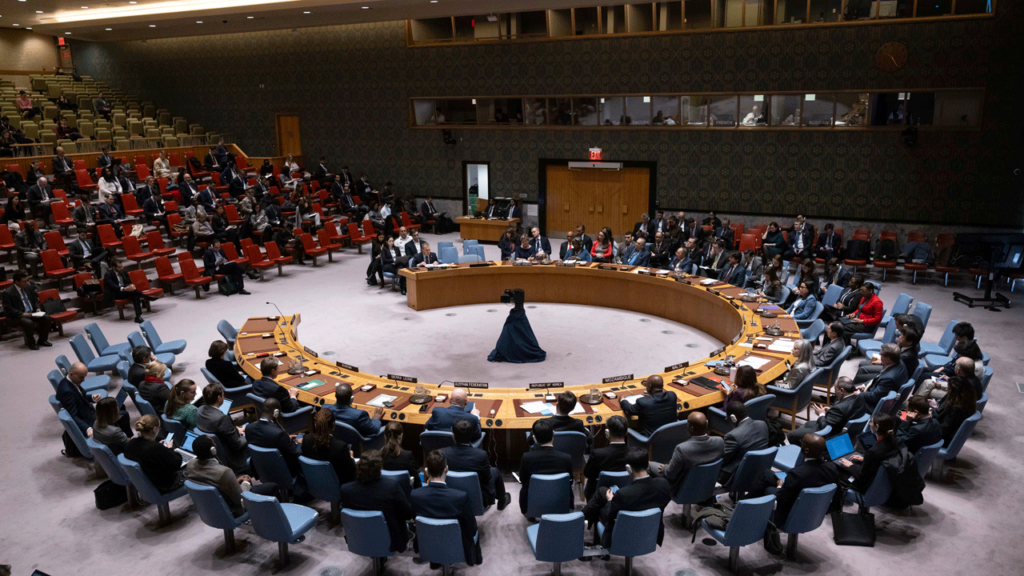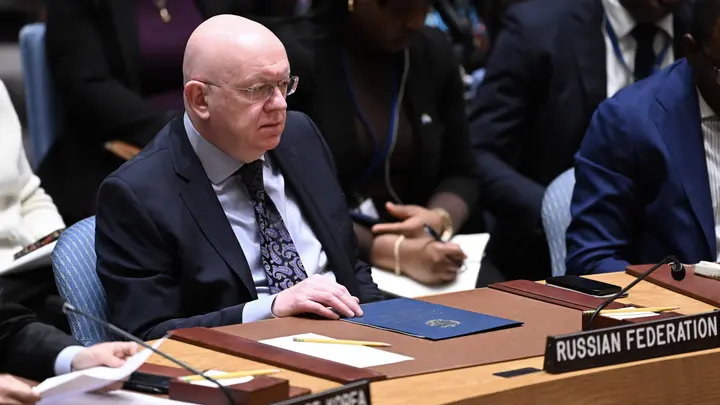The US-led effort received support from 60 member states but was overturned by a Russian veto.
A US-led resolution banning the use of nuclear weapons in space had dozens of co-sponsors. Still, Russia vetoed the move amid reports it had deployed a weapon capable of destroying satellites.
“Detonating a nuclear weapon in space would destroy satellites critical to communications, agriculture, national security, and more worldwide, with serious implications for sustainable development and other aspects of international peace and security,” the countries wrote in a press release before the United States mission vote.
“The diverse group of cosponsors of this resolution reflects a strong shared interest in avoiding such an outcome,” the statement read. “Today we join these member states in calling on the Security Council to meet this moment and unanimously adopt a resolution consistent with its mandate to maintain international peace and security.”
Supreme Court to hear arguments in Trump presidential immunity case
The US and Japan submitted the resolution to the UN Security Council for a vote on Wednesday, but Russia shot down the move. Before the vote, Russia’s deputy U.N. Ambassador Dmitry Poliansky said his country’s initial impression was that the resolution served as “another propaganda stunt by Washington” and that it was a “highly politicized” effort that was “divorced from reality,” the Associated Press reported.
The draft resolution, which received support from 60 member states, said “Preventing an open arms race would prevent a serious threat to international peace and security”. It confirms that countries that have ratified the 1967 Outer Space Treaty must comply with their obligations.

The tug-of-war over hypothetical space-based weapons followed claims from the White House in February that Russia had deployed a “disturbing” anti-satellite weapon – although no one has confirmed the weapon is operational or even in the testing phase.
Foreign Policy reported that the weapon could allegedly destroy satellites by creating massive energy waves when detonated. The weapon could therefore disable countless other satellites that serve commercial and government purposes, including cellphone use and Internet access.
At the time Russia argued that it was upholding the international 1967 treaty, which banned the deployment of “nuclear weapons or any other type of weapons of mass destruction” into orbit or placing “weapons in outer space in any other manner”.
“Our position is very clear and transparent: we have always been against the deployment of nuclear weapons in space,” Russian President Vladimir Putin said in February. “On the contrary, we urge everyone to abide by all agreements in this field.”

However, Russian Defense Minister Sergei Shoigu at another point cryptically added that Russia had only developed space capabilities “that other countries, including the U.S., have.”
U.N. Secretary-General Antonio Guterres later warned that “geopolitical tensions and mistrust have raised the risk of nuclear war to the highest level in decades.”
Putin, throughout the conflict with Ukraine, has dangled threats of nuclear weapons. “From a military-technical point of view, we are ready,” he said in March when asked about a potential nuclear war.
U.S. And Putin have used the threat of nuclear weapons in Ukraine as a means of deterring more direct intervention from other NATO allies, repeatedly insisting that any military deployment or similar more direct moves against Russia would be considered intervention in the war.
